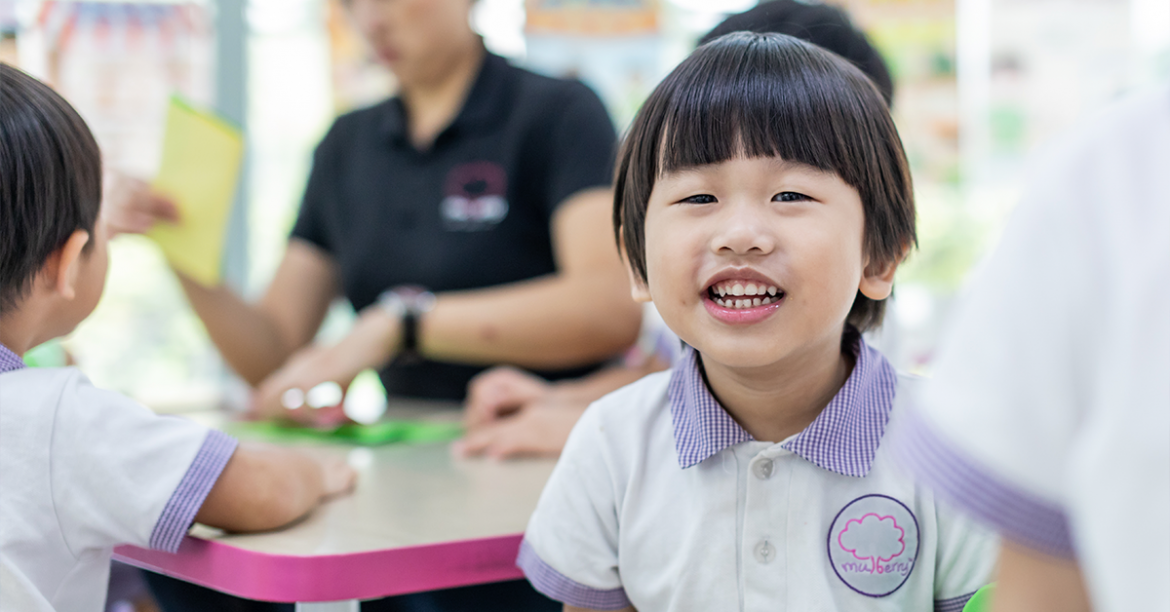
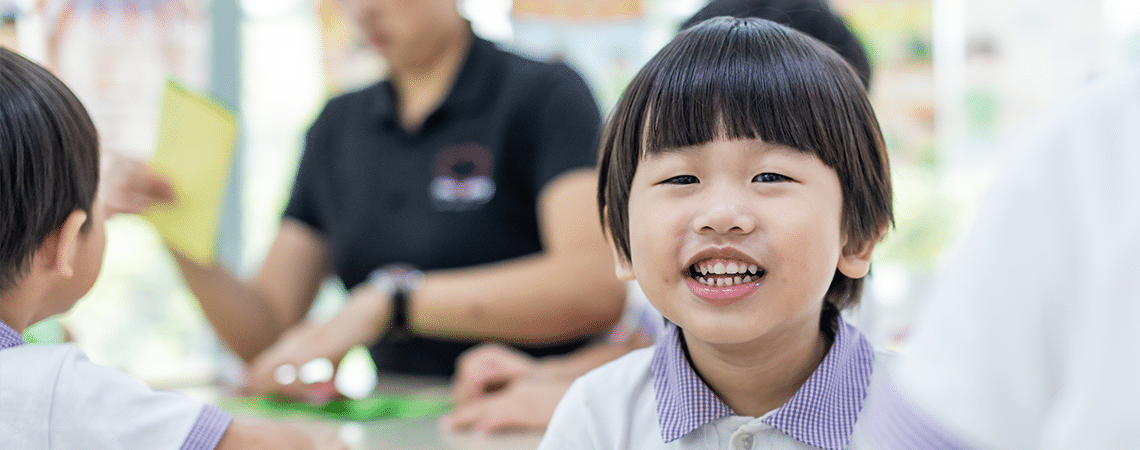
Introducing THOMAS: Our Habits of Mind™ Assessment Platform
Being the only preschool in Singapore to offer the Habits of Mind™ as part of our award-winning curriculum, we have witnessed the amazing effects these habits have on every Mulberrian. As every child has unique strengths, it is important to be able to measure and analyze the development of these habits in the child. We do so through our proprietary assessment platform called THOMAS (The Habits of Mind Assessment Scales).
THOMAS – The Habits of Mind™ Assessment Scale
Dr. Henry Toi, who is our Research & Curriculum Dean and an affiliate of The Institute for Habits of Mind, developed THOMAS as a psychometric tool used to assess thinking dispositions of individuals. Particularly for young children, behavioral observation is a complex activity and a comprehensive and structured method to observe and chart the growth of these habits is needed.
THOMAS was designed as an online questionnaire comprising 67 questions to measure all 16 Habits of Mind. The user or “observer” (can be a teacher, parent, caregiver or researcher) will answer the questions, after which a report is generated on the state of the child’s development.
The report consists of four main sections; A) Overview of the results, B) Subscales of each habit, C) Social emotional learning scales, and D) Strategies and ideas to strengthen Habits of Mind.
A) Overview of the Results
This section provides the results of the assessment. You will be able to see the child’s top 3 habits or the habits they demonstrate the most capability in. These is calculated by taking the average scores from the subscales or components of each habit.
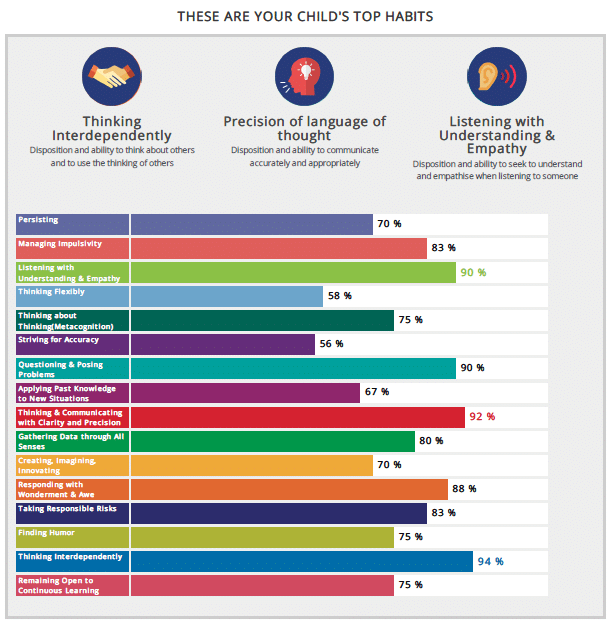
Sample results of Section A.
The above is a typical report generated for a child who underwent the assessment. You will be able to see the child’s top 3 habits, or what they tend to do more of compared with the other habits.
You will also see that the child tends to have less of the habit of “Thinking Flexibly” and “Striving for accuracy” compared with the other habits.
B) Subscales of Each Habit
Subscales are the components of each Habit and could be either skills or attitudes. The subscales give you a better understanding of the strength and weakness of each habit.
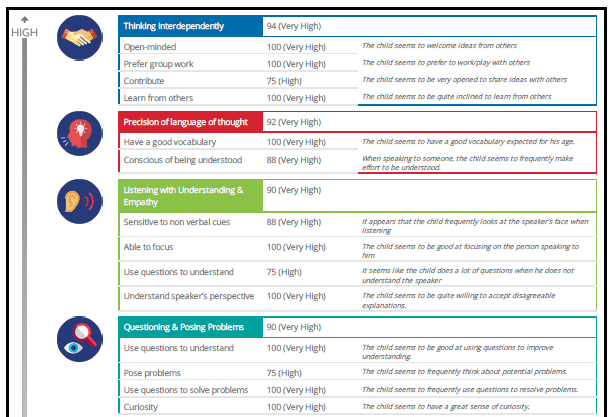
Sample results of Section B: Shows the strongest habits in the child.
Subscales provide a clearer picture of the child’s task competency within the habit. In this example, the child scored the highest in Thinking Interdependently which shows that he / she can work very well with others and exhibits a strong team spirit. It can also be seen that the child has a good grasp in language and also able to listen well and empathize with others.
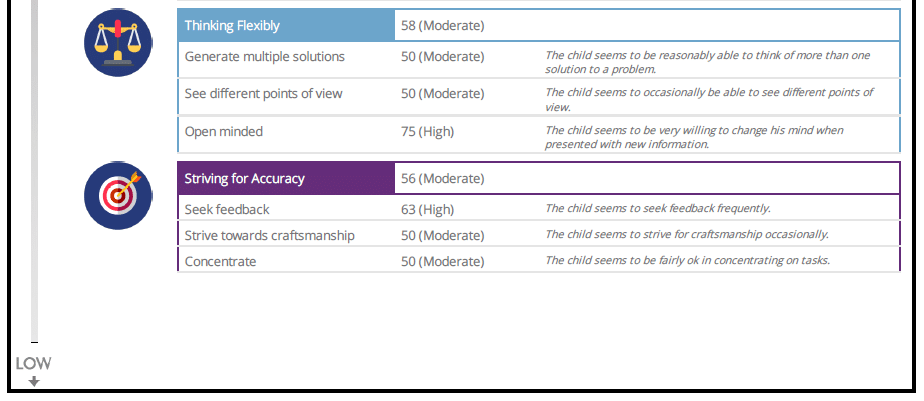
Sample results of Section B: Shows the weakest habits in the child.
On the lower set of habits, he / she seems to be less inclined to see different points of view and think of many options when solving problems. This child also seems to be weaker in “Striving for accuracy” in his / her work due to weaker concentration skills and sense of craftsmanship.
C) Social Emotional Learning Scales
This section provides you with the results of the child’s social emotional learning (SEL). SEL is the process through which children understand and manage emotions, set and achieve positive goals, feel and show empathy for others, establish and maintain positive relationships, and make responsible decisions.
There are five main components of SEL; self-awareness, self-management and organization, social awareness, relationship management and responsible decision-making. SEL is an important part of a child’s development and Habits of Mind can help and effectively develop it.

Sample results of Section C: Shows the child’s Social Emotional Learning scores.
The profile of the child’s SEL indicates a well-balanced and healthy SEL scale. It can also be deduced that the child is stronger in social relationship skills as compared with personal choices.
D) Strategies and Ideas to Strengthen Habits of Mind
You will find strategies and suggestions in this section based on your child’s scores. It is designed to help you begin a journey with your child to improve their Habits of Mind. Every habit and subscales provide you with suggested activities to work with your child and advice on how to manage certain situations or scenarios.

Sample results of Section D: Suggestions for educators / parents to help the child improve the habits.
These strategies provides the educator or parent with ideas and suggestions to help the child further develop these habits and provides guidance on nurturing their weaker habits.
What’s Next?
Since November 2019, our teachers at Toa Payoh have been using THOMAS to assess the students based on observations at school. In 2020, parents will also be roped in to complete the THOMAS questionnaire based on their observations at home. Combined, these reports will provide a more accurate insight into the child’s growth in these intelligent habits.
These findings benefit our curriculum R&D team by providing invaluable data and metrics that contributes to the research of Habits of Mind and enable the development of quality curriculum. With this, you can be sure that your child experiences learning that empowers them with thoughtful and effective thinking capabilities.
As trailblazers in the early childhood industry, Mulberry Learning constantly seeks to redefine the early childhood learning experience through a unique pedagogy that moulds intelligent thinkers, positive learners and the Future Ready Child.
About Mulberry Learning
At Mulberry Learning, no effort was spared in crafting a truly unique preschool programme that incorporates the Reggio Emilia methodology, Habits of Mind™ framework and Multiple Intelligences.
Voted Singapore’s “Best Holistic Learning Programme” and recently featured by the Straits Times, Business Times, CNA and The Smart Local, Mulberry Learning is the only preschool in Singapore and the world to be certified by the USA for the “Habits of Mind”, the same intelligent thinking framework used by M.O.E. to groom the brightest Primary School students in the Gifted Education Programme!
Schedule a personalized tour with us to discover how Mulberry Learning helps your child become a confident communicator, independent thinker and a passionate lifelong learner.






